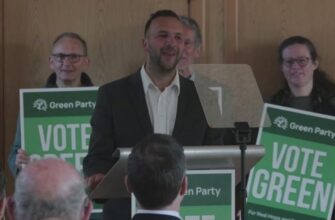A recent Supreme Court ruling in the United Kingdom has ignited debate, asserting that the legal definitions of “woman” and “sex” will be tied exclusively to biological females. The decision, delivered unanimously by Britain’s top judges, stems from challenges surrounding gender legislation and concerns regarding potential erosion of women’s rights.
For several years, tensions have simmered between activists and feminists over the perceived impact of trans-inclusive policies on established protections for women. The case brought before the court specifically questioned a piece of Scottish legislation, and the outcome has been hailed as a significant victory by those advocating for the preservation of traditional definitions.
Trina Budge, director of For Women Scotland—the group that initiated the legal challenge—stated unequivocally, “This case was always about women’s rights…never about trans rights. It’s absolutely a victory for women’s rights.”
The ruling has not been universally welcomed. India Willoughby, a prominent transgender woman and Britain’s first transgender national television newsreader, voiced her disapproval on X (formerly Twitter) in a passionate response.
“I have always been a woman. I remain a woman. And I will die a woman. Fought hard to be me. Suffered sacrifice, pain and abuse. No corrupt court or whiskery old fart judge who refused to hear any trans advocacy will ever take that away from me. They can’t – because I am who I am.… Woman. Female.”
The broader reaction to the Supreme Court’s decision has been varied:
- Kemi Badenoch, Leader of the Conservative Party, declared, “Saying ‘trans women are women’ was never true in fact and now isn’t true in law, either. A victory for all of the women who faced personal abuse or lost their jobs for stating the obvious. Women are women and men are men: you cannot change your biological sex.”
- J.K. Rowling praised the tenacity of the Scottish women involved, adding, “They’ve protected the rights of women and girls across the UK.”
- Duncan Bannatyne called for gym owners to ensure single-sex spaces remain exclusively for biological women.
During the proceedings, Lord Hodge clarified that the court’s role was not to formulate policy regarding transgender protections but rather to interpret existing legislation.
He stated: “Our role is to ascertain the meaning of the legislation which parliament has enacted to that end… The central question on this appeal is the meaning of the terms woman and sex in the Equality Act 2010. Do those terms refer to biological women or biological sex? Or is a woman to be interpreted as extending to a trans woman with a gender recognition certificate?”
Ultimately, Lord Hodge concluded, “The terms woman and sex in the Equality Act 2010 refer to a biological woman and biological sex.”

